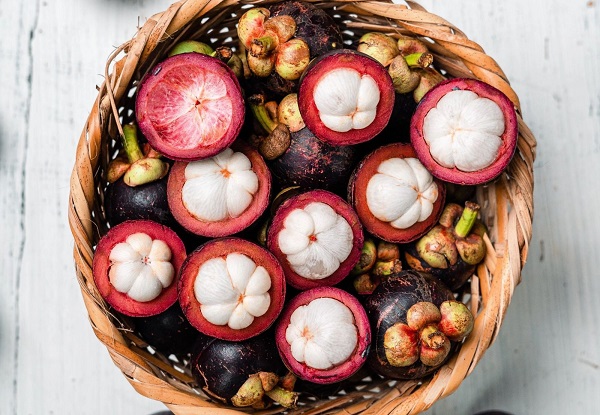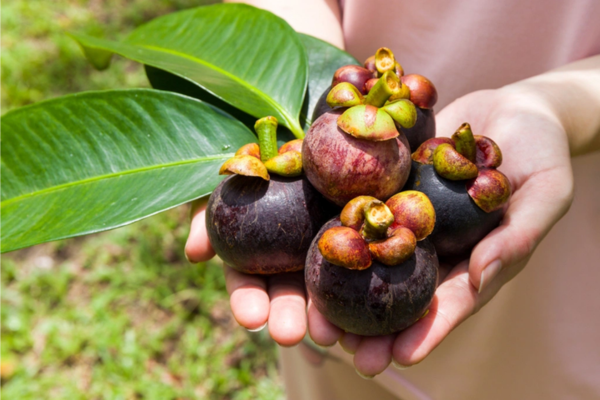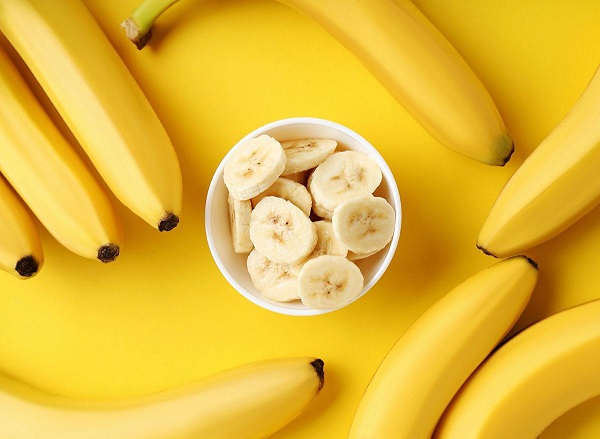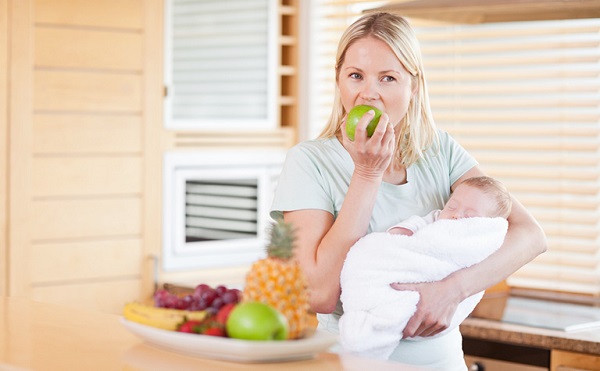“`html
Mangosteen is a delicious fruit with many nutrients that are beneficial for health. However, for postpartum mothers, can they eat mangosteen? Does eating mangosteen cause milk loss? Mothers’ questions will be answered in the article below.
Nutritional values of mangosteen
Before answering the question, can postpartum mothers eat mangosteen? Let’s explore the nutritional value of this fruit.
Mangosteen is a popular fruit in Vietnam. It has a dark purple, thick rind, and white flesh with a sweet and slightly tangy flavor. This is a nutritious fruit, containing many vitamins, minerals, and antioxidants that bring many wonderful health benefits such as:
- Mangosteen contains tryptophan and amino acids that act as neurotransmitters to improve mood and sleep, and reduce stress and fatigue.
- Antioxidants help restore damaged skin, slow down the aging process, reduce dark spots, and support cancer prevention.
- Mangosteen is a low-calorie fruit with a high fiber content, which is good for the digestive system and supports effective weight loss.
- The content of vitamin C and vitamin B9 helps control diabetes and enhance the immune system.
- Promotes red blood cell production, blood regeneration, prevents anemia and cardiovascular problems, thanks to its rich iron content.

Can postpartum mothers eat mangosteen? Does eating mangosteen cause milk loss?
According to nutritionists, postpartum and breastfeeding mothers should not eat mangosteen. Because mangosteen contains some unhealthy components, it can cause postpartum mothers to experience some symptoms that affect their health such as insomnia, affecting milk quality, allergies, hives, rashes, stomach pain, diarrhea, constipation, nausea, etc.

Moreover, mothers who have had a C-section should not eat mangosteen. Because mangosteen contains xanthone compounds that cause blood clotting disorders, which can be life-threatening.
Summary of fruits good for postpartum mothers’ health
Besides mangosteen, mothers can supplement their energy by drinking enough water and eating other good fruits such as:
- Bananas: Laxative, prevents constipation and bloating after giving birth. Not to mention, bananas are also rich in vitamins and minerals that improve the quality of breast milk.
- Ripe papaya: Papaya is a fruit that helps mothers increase resistance after giving birth, laxative, heals wounds and prevents infections.
- Sapodilla: 100g of sapodilla contains 21mg of calcium along with many vitamins and minerals that help strengthen mothers’ bones, while stimulating milk production, making milk thicker and cooler.
- Avocado: Avocado is a fruit rich in fatty acids such as omega 3, 6, 9, not to mention avocado is also an easily digestible fruit, supporting weight loss, promoting lactation, and beautifying skin.
- Grapefruit: If you don’t know what fruit to eat after giving birth, feel free to eat grapefruit. Grapefruit is a watery fruit, rich in vitamin C, fiber and antioxidants that help boost immunity, reduce constipation, prevent postpartum bleeding, control gestational diabetes, etc.
- In addition to the above fruits, mothers can consult some other fruits such as custard apple, fig, grape, dragon fruit, orange, apple, etc.

Notes for mothers when eating fruit after giving birth
- Mothers should choose organic fruits with origin, quality certification to ensure health safety.
- Besides, mothers should buy seasonal fruits because out-of-season fruits are often stored for a long time, containing a large amount of harmful chemicals that seriously affect the health of mother and baby.
- Before eating, mothers must wash the fruit thoroughly to remove all parasites, chemicals or plant protection substances.
- Postpartum mothers should absolutely not eat cold fruits because their stomachs are still weak and prone to stomach aches and diarrhea. Not to mention, the baby’s milk source is also affected, the baby will have a cold stomach, cry, and have digestive disorders.
- Some fruits that postpartum mothers should avoid are hot fruits such as lychee, hawthorn, peach, pomegranate or cold fruits such as cucumber, watermelon, kiwi, mango, pear, etc.

Hopefully, this article has answered mothers’ questions: ” Can postpartum mothers eat mangosteen? Does it cause milk loss?”. If you love mangosteen, consider carefully before eating it, especially during postpartum and breastfeeding.
Related news:
- [Answered] Can postpartum women eat ripe papaya?
- [QUESTION] Should mothers and postpartum women eat yogurt?
“`
